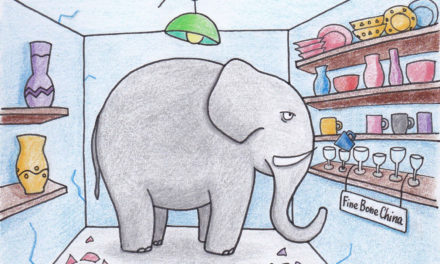Learning how to cope with conflict
Conflict is an inevitable part of life; we all experience it. Whether it’s at work or in our personal relationships, when conflict is not managed appropriately it can become a source of abundant stress and anxiety. The consequences are loss of productivity, motivation and communication breakdowns.
Conflict can be an opportunity for growth and building trust. In the book Resilience written by Liggy Webb, a number of techniques are recommended to help us manage conflict productively.
Not all conflict is bad
Try to understand there can be benefits to a conflict situation. When two or more people disagree, this disagreement simply provides two different views and the opportunity to learn, grow and constructively problem solve. It is not our place to try to force someone else to accept our opinion. Nor is it anyone’s place to force us to accept theirs. Understanding that the other person is also a human being with his or her own reality, feelings and perspectives allows us to have a bit of space and empathy. Step away from your desire to get your point across and listen quietly to their viewpoint. Then, if you can, communicate your position and your reasoning (for example, ‘this is what I think and the reason I think that is…’). If your nervous system has been triggered to release adrenalin and you’re in the fight/flight response, you may need to come back to it at a later stage and that’s ok too.
When we remember that conflict is not a bad thing but a HUMAN thing, we no longer need to spend extensive energy avoiding it. Instead, become inquisitive. Are there new ideas that could stem from this? Is there an opportunity to learn more about myself or this other person? Is there a different perspective I’m not seeing? Can I use this situation to practice effective communication?
When I worked in corporate, I recall a disagreement between two departments on a particular business process. The raging egos and resulting ‘cold war’ caused an unproductive work for all involved. The leadership team got the teams together, all in the same room, and opened the floor for a discussion to shed some light on the issue. Not all of the problems were resolved that day, but it started a meaningful conversation. Both departments communicated their concerns and had greater insight into the processes of each department. This allowed the opportunity to collaboratively brainstorm new ideas for a more effective process.
The cool down model
If you ever find yourself in a conflict situation, Libby Webb designed a five step process to help you get through it. The process she refers to as ‘The Cool Down Model’ involves the following:
- Listening: In conflict situations, soften your stance and listen (when it is safe to do so). An act of simple listening with an unthreatening posture can defuse stress and aggravation and allow the situation to pass. You don’t have to be concerned about saying the right thing, simply listen.
- Sympathising: This step isn’t about having a pity-party, it’s about being supportive of another human being. There is generally something deeper driving the emotion which the person may be completely unaware of. Simply saying ‘thank you for telling me, I am sorry you feel this way’ can defuse a contentious situation.
- Empathising: Gain a new perspective by putting yourself in the other person’s shoes. As I mentioned, everyone has their own individual experiences, feelings and perspectives. I like Libby’s take on this where she says there are always three sides to every situation – “your perspective, their perspective and a joint perspective that you and they may well arrive at together”.
- Asking questions: In order to reach solutions, ask questions. When we’re in conflict, our nervous system prepares for battle and we tend to make assumptions about people. Instead, challenge yourself to be open-minded. Questions bring clarity and help take you closer to the root cause of the problem. Ask them ‘what is it that causes you to feel that way?’ or ask yourself ‘what am I believing in this moment and is it really true?’ These questions can help us break free from obstructive and unhelpful thinking patterns.
- Agree on a joint course of action: As we begin to unravel the layers of conflict, we have the opportunity to arrive at new solutions of mutual benefit. Sometimes we can’t and your ultimate course of action may be one of acceptance or rejection. Obviously, how you respond will be influenced by the relationship itself. If you have a conflict with a boss because you think your way is better and they disagree, you need to accept what your role is in the company. If you have a conflict in a personal relationship, you might both agree to disagree. Whatever the outcome, it doesn’t need to end in fireworks.
Mindful relationships
Relationships are not a solo sport. Whatever role we play in life we will always find ourselves co- existing with people. Our success in both our personal and working lives will depend highly on the quality of our relationships. Being mindful of our emotions can help us maintain focus on the issue. As we become more familiar with how our body experiences and processes emotions, we learn to navigate the complex world of relationships with more ease.
It’s a good idea to also pause and reflect on your motivation in a conflict situation. If your end goal is to be right and get your own way, you will continue to attract conflict into your life. If you can work together toward a resolution, the process can help strengthen relationships, build trust, increase motivation and staff productivity. The choice is yours, the outcome is not.
Don’t worry if you can’t follow all these steps in one go. For me it’s been a process. First I needed to pause and reflect on my own needs. As I learned to increase my emotional balance, I could then start applying the techniques. With practice, these behaviours will feel more natural as you increase your emotional regulation skills and learn to communicate more effectively.
One last note on this: There will surely be people with whom any and every strategy outlined above will be counterproductive. Sometimes, all you can do is refuse to let them rent space in your head. Libby writes how important it is to recognise “this is their issue and not yours and there is no benefit in taking it personally. It also helps to remember that if they were truly happy they wouldn’t behave in that way so that will help you to feel some compassion, which can be helpful.”
Words To Grow By
Martin Luther King
“People fail to get along because they fear each other; they fear each other because they don’t know each other; they don’t know each other because they have not communicated with each other .”





